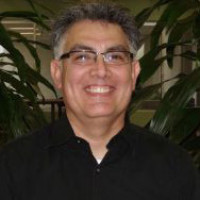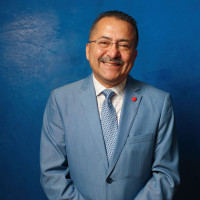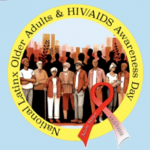Introduction | A-C | D-F | G-L | M-O | P-R | S-Z
Gonzalo Aburto
New York, New York

Gonzalo AburtoBill Wadman
Gonzalo Aburto is the Latin America initiative director for the anti–HIV criminalization group the Sero Project and a cofounder of LatinX+, an international network of Latino people living with HIV. His experience as a journalist has made him a whiz at disseminating information to the Latino gay and HIV communities. Gonzalo was the founding editor of POZ en Español and the executive producer of La Nueva Alternativa, a weekly radio program at WBAI. He founded Los Mexicanos and Águila o Sol, publications geared to the Mexican community, as well as HoMoVisiones, a Spanish-language cable TV program for the Latino LGBTQ community. He was a member of Activistas Latinos Contra el SIDA, the Latino group of ACT UP New York. He formerly worked at La Prensa, the oldest Spanish-language newspaper in the United States. Originally from Mexico, Gonzalo has been based in New York since 1986. He’s also this issue’s POZ Hero.
Andrés Acosta Ardila
Winter Park, Florida

Andrés Acosta Ardila
A nationally recognized HIV advocate, Andrés Acosta Ardila is the community relations manager for the Contigo Fund, the largest financial donor to LGBTQ causes in Central Florida. He’s also the director of respite operations for Peer Support Space in Orlando. Previously, Andrés was the program coordinator for the Central Florida HIV Planning Council at Heart of Florida United Way. He was also the program manager for the Maven Leadership Collective. He’s on the board of directors for LOUD (Latino Outreach and Understanding Division) powered by AIDS Healthcare Foundation and is a 2022 community ambassador for the Centers for Disease Control and Prevention’s (CDC) “Let’s Stop HIV Together” campaign. Previously, he chaired the Community Advisory Board for HIV vaccine trials at the Orlando Immunology Center.
Moisés Agosto-Rosario
Oxon Hill, Maryland

Moisés Agosto Rosario
Moisés Agosto-Rosario has been a leader in the HIV community for over 30 years. Currently the director of treatment for NMAC (formerly the National Minority AIDS Council), the Puerto Rican native became an activist during the peak years of the AIDS crisis. In 1993, newly diagnosed and frustrated with the lack of research on and treatment information for people of color, he approached NMAC to discuss possible solutions. The result? He was hired as the group’s first-ever director of treatment education and advocacy. He has since advised researchers, scientists, providers, executives and community members on numerous issues related to HIV and AIDS. A poet, author, editor, activist and advocate, Moisés is a vital member of many HIV groups and uses his dynamic voice and experience to address issues concerning aging with HIV.
Jesús Aguais
New York, New York

Jesús AguaisBill Wadman
In 1989, Jesús Aguais left his native Venezuela for New York City, where he witnessed firsthand the blossoming of the LGBTQ community and the harrowing AIDS epidemic surrounding it. He learned about ACT UP New York through a roommate and joined the group’s Latino caucus. Jesús worked as a counselor with the Hispanic AIDS Forum and at the HIV clinic at the former St. Vincent’s Hospital, where he saw the wide spectrum of people affected by AIDS. In 1996, Jesús founded Aid For AIDS (AFA), a nonprofit that recycles unused antiretrovirals (ARVs) and distributes them free of charge to people living with HIV worldwide. Since its inception, AFA has provided more than 20,000 people with HIV in 75 low- and middle-income countries with nearly $200 million worth of ARVs. It has served thousands of refugees and migrants from South and Central America and is currently responding to the crisis of asylum seekers arriving in New York City from Southern states.
Paul Aguilar
San Francisco, California

Paul Aguilar
A published writer, videographer and artist, Paul Aguilar is a third-generation San Franciscan of Mexican descent who was diagnosed with HIV in 1988 at age 25. He has long been a committed HIV and AIDS advocate and service worker. He volunteered at the Shanti Project for many years and is a member of the HIV Advocacy Network and chair of the HIV Caucus of the Harvey Milk LGBTQ Democratic Club. He’s also a resident and board member of Marty’s Place, the only self-governing affordable housing cooperative for people living with HIV and AIDS in the United States. Paul was a cofounding author of The San Francisco Principles 2020, which outline the unmet needs of long-term survivors in the city. His research on the impact of COVID-19 on HIV services prompted a hearing by the San Francisco Board of Supervisors, which led the city to apportion $3.3 million for HIV prevention in its 2022–23 budget. He recently started working as a long-term survivor community liaison with the aging services team at the San Francisco AIDS Foundation.
Mycah Lee Arellano
San Antonio, Texas

Mycah Lee Arellano
Mycah Lee Arellano has promoted HIV awareness throughout his 30 years of professional and volunteer experience. In 2001, he founded Project Insight to empower individuals by promoting their physical, mental and emotional well-being through creative healing and educational tools. He is a licensed and certified substance abuse clinician and certified life coach who uses creative journaling as art therapy. Born in South Texas, he created the Eagle Talk Show, the first bilingual academic talk show in Texas. In 2019, he launched the podcast MycahOnMic, which focuses on health care issues, HIV education and mental health advocacy. Check out his educational—and inspirational—messages on social media.
Damián Cabrera-Candelaria
San Juan, Puerto Rico

Damián Cabrera Candelaria
Damián Cabrera-Candelaria started working as the program manager for the treatment division at NMAC in April 2020 while the agency was in lockdown during the COVID-19 pandemic. He leads efforts to end the HIV epidemic by implementing programs targeting people living with HIV who are 50 and over and gay men of color. He’s also the founder of Puerto Rico’s LGBTQ Services Directory, a guide of LGBTQ-friendly health providers on the island. Damián holds a master’s degree in sociology from the University of Puerto Rico, where he worked as a programmatic adviser and research assistant for the graduate school of public health. While there, he interviewed gay men living with HIV to better understand the experiences around HIV in the aftermath of hurricanes Irma and Maria.
Maria Camacho
Corte Madera, California

Maria Camacho
Maria Camacho has been an HIV case manager at The Spahr Center in Corte Madera since 2011. Previously, she provided psychosocial services for people living with HIV at New Connections in Contra Costa County. Maria has devoted her career to ensuring that community members living with HIV in the San Francisco Bay Area have the support they need to thrive. At The Spahr Center, she formed a weekly Spanish language HIV support group that she facilitates. She also ensures that case management and financial assistance requests are available in Spanish to those living with HIV.
JP Cano
Dallas, Texas

JP Cano
JP Cano, BSN, RN, joined the Resource Center of Dallas in 2008 and has been the prevention services director since 2016. He oversees the center’s HIV and sexually transmitted infection (STI) testing and pre-exposure prophylaxis (PrEP) programs as well as the Grupo Orgullo Hispano program, which promotes HIV education and prevention through social activities and group discussions. He was instrumental in the launch of the center’s mobile HIV and STI testing unit, SexyHealth, which has helped to eliminate barriers that prevent people from taking control of their sexual health. JP was previously a member of the Dallas HIV Task Force and was the cochair for the LGBTQ Creative Change conference held in Dallas in 2020.
Wally Cantu
Harlingen, Texas

Wally Cantu
A former kindergarten teacher, Wally Cantu transitioned into a career in public health after witnessing how inequality, inaccessibility and poverty can impact health outcomes. He has worked at hospitals, health clinics, schools and nonprofits in Austin, New York City and Washington, DC. Wally joined the Valley AIDS Council (VAC) in 2012 and became the organization’s executive director in 2016. Over the years, he has successfully developed and managed various education and wellness programs and strengthened and expanded the organization’s reach and stability through fundraising and grant proposals. Since 2015, VAC has organized and hosted the annual National Latinx Conference on HIV, HCV (hepatitis C virus), & SUD (substance use disorders).
Joaquín Carcaño
Durham, North Carolina

Joaquín Carcaño
Joaquín Carcaño was born and raised along the Texas-Mexico border in the Rio Grande Valley. His compassion for the HIV community grew out of his experience as an undergraduate volunteering at a hospice for people experiencing the final stages of AIDS. Since then, he has served in the Peace Corps, was the lead plaintiff in the lawsuit challenging the North Carolina “Bathroom Bill” (which restricted access to public facilities for trans people and did away with antidiscrimination protections for LGBTQ folks). He serves as a board member for the Southern AIDS Coalition, the LGBTQ Center of Durham and the ACLU of North Carolina. He’s currently the director of Southern health policy for Latinos in the South, a program of the Latino Commission on AIDS.
Adam Castillejo
London, England

Adam CastillejoJon Attenborough
Adam Castillejo, aka the London Patient, is the second person to be cured of HIV after receiving a bone marrow transplant (as part of treatment for blood cancer) from a donor with a rare genetic mutation that blocks HIV from entering the body’s T cells. The British Venezuelan first revealed his identity in 2020 in The New York Times, which quoted him as saying, “I want to be an ambassador of hope [for people living with HIV].” Since then, he continues to share his story and serve as an inspiration for cure research. He was interviewed by journalist Christiane Amanpour on CNN, and in June, he was featured on the cover of POZ. “Life is so precious,” Adam says. “When they told me I was going to die, I realized the importance of enjoying life the best way you can.”
Christian Castro
Chicago, Illinois

Christian Castro
Christian Castro got his start working in public health in his late teens as an intern at the New York City Office of Gay & Lesbian Health. While a graduate student at the University of Maryland, College Park, he was diagnosed with HIV. In 2011, Christian joined the Latino Commission on AIDS, working to fight HIV in Latino communities in the South. In 2014, he joined the RADAR research team at Northwestern University’s Institute of Sexual and Gender Minority Health and Wellbeing. Last spring, he became the senior manager of Getting to Zero Illinois (GTZ-IL), a statewide initiative—developed with community input—that aims to end the HIV epidemic by 2030. The plan serves as a statewide blueprint and is a partnership between the Illinois and Chicago departments of health and the AIDS Foundation of Chicago. GTZ-IL aims to engage and mobilize community members throughout Illinois to advocate on the state and local level for systems that increase linkage to care, HIV testing, access to PrEP and HIV-dedicated housing.
Guillermo Chacón
New York, New York

Guillermo ChacónBill Wadman
Since 2010, Guillermo Chacón has led the Latino Commission on AIDS (LCOA), where he advocates for HIV prevention and overall health care for Latinos. As a youth in El Salvador, he was encouraged by his parents to serve his community by volunteering at the family’s local parish. His compassion for others and sense of community is central to his work. In addition to his role at LCOA, he is a member of the Presidential Advisory Council on HIV and AIDS (PACHA) and serves on the New York State Minority Health Council. He’s a member of the National Hispanic/Latinx Health Leadership Network and the founder of the Hispanic Health Network. He serves on the boards of the New York City AIDS Memorial and the New York Immigration Coalition and is also an adviser for Alianza Americas and AIDSVu.org. In 2003, Guillermo helped launch National Latino AIDS Awareness Day. “You always have to pay attention to who is less visible,” he says.
Elia Chinó
Houston, Texas

Elia Chinó
Elia Chinó is the founder and executive director of Fundación Latinoamericana de Acción Social (FLAS). The Houston-based HIV nonprofit serves the city’s Latino community and launched Project Vive to help educate Spanish speakers about HIV and expand testing for the virus. Elia formed FLAS in 1994 after losing many friends to AIDS. Born in Michoacán, Mexico, Elia has called Houston home for over 37 years. She is a former member of the City of Houston’s Community Planning Group and the former chair of the city’s Latino HIV Task Force. She has said her dream is to decrease health disparities in Houston and surrounding areas.
Dominic Colón
Bronx, New York

Dominic Colón
An award-winning writer, actor and director, Dominic Colón is the author of The War I Know, a play about the impact of HIV on the Latino community in the Bronx. The play won the inaugural Write It Out! Prize given to a playwright living with HIV. His film Crush won the Short Film Script Competition Award in the New York International Latino Film Festival. He has appeared in over 60 films and television shows, including Power, Bulland Orange Is the New Black. Currently, Dominic has projects in development at Hulu and other platforms and is a writer on the upcoming Netflix series Pink Marine, produced by television legend Norman Lear.
Ben Cuevas
Los Angeles, California

Ben CuevasCourtesy of Ben Cuevas / Sean Black
Sex-positive artist Ben Cuevas’s work is rooted in concepts of otherness and intersectionality and inspired by his experience as a queer, nonbinary Latinx living with HIV. He earned his BA in mixed media, installation and photography at Hampshire College in 2010. Ben’s artwork, often based in textiles, has been exhibited at Craft Contemporary (formerly the Craft and Folk Art Museum) in Los Angeles, the Museum of the City of New York, the Leslie-Lohman Museum in New York City and others. He recently participated in an exhibit at San Francisco State University. His work is featured in several books, including Duets: Ben Cuevas & Annie Sprinkle in Conversation, published by Visual AIDS, and Queer Threads: Crafting Identity and Community, edited by John Chaich and Todd Oldham.
Christopher J. Cuevas
Durham, North Carolina

Christopher Cuevas
After the 2016 mass shooting at the gay nightclub Pulse in Orlando, Christopher J. Cuevas cofounded and served as the executive director of QLatinx, a racial, social and gender justice movement working toward advancing LGBTQ and Latino issues. Diagnosed with HIV in 2017, Christopher currently works as the program manager of the LGBTQ+ Equality Program at the progressive Laughing Gull Foundation, which typically funds grassroots organizations engaged in direct service, organizing, advocacy and culture change work. They also serve on the board of the Peace and Justice Institute. In 2017, Christopher received Equality Florida’s 2017 Voice of Equality Award, and in 2018, they were named an American Graduate Champion by PBS. A lifelong peace practitioner, educator and community organizer, Christopher has led conversations and facilitated campaigns addressing structural racism, health equity and LGBTQ issues.
Introduction | A-C | D-F | G-L | M-O | P-R | S-Z
To read the 2021 POZ 100, click here
To read the 2020 POZ 100, click here.
To read the 2019 POZ 100, click here.
To read the 2018 POZ 100, click here.
To read the 2017 POZ 100, click here.
To read the 2016 POZ 100, click here.
To read the 2015 POZ 100, click here.
To read the 2014 POZ 100, click here.
To read the 2013 POZ 100, click here.
To read the 2012 POZ 100, click here.
To read the 2011 POZ 100, click here.
To read the 2010 POZ 100, click here.







Comments
Comments